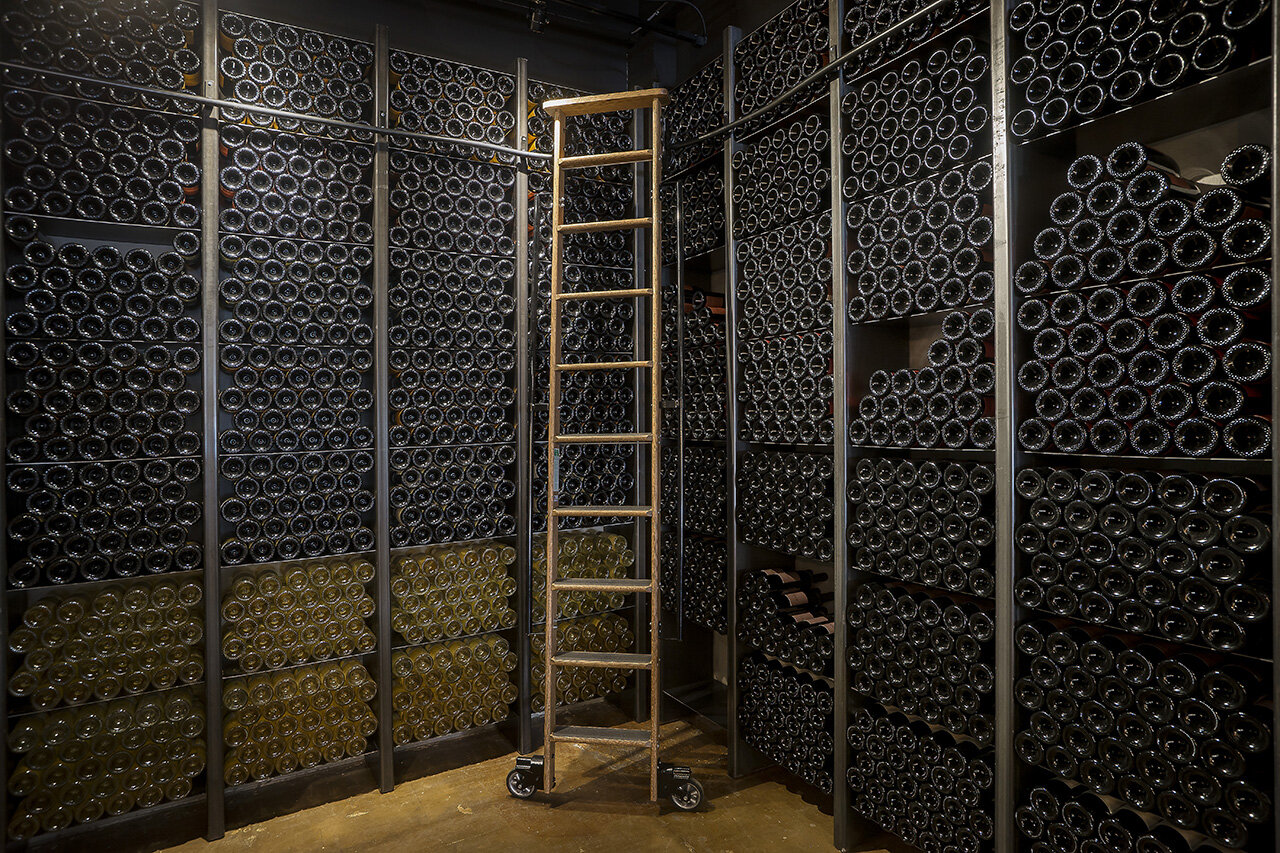How To Store Wine: The Dos & Don’ts Of Wine Storage
Aridus Wine Company Scottsdale Tasting Room
The question of how to store wine is one that stymies many a wine drinker. It seems to me that most people feel slightly ashamed about their wine storage habits, but without really knowing what it is that they should be doing to ensure that the wines they have purchased taste their best. Ultimately, good wine storage comes down primarily to temperature. Let’s get into it.
Ideal Wine Storage Temperature
I’ll say this first and foremost – it is often very difficult, if not impossible, to know the conditions that a wine has experienced prior to your purchase. There is a world of difference between a wine that you have purchased directly from a winery, and a wine that you pick up from a supermarket shelf. Wines bought at a winery are likely to have been kept in the very best conditions possible – at temperatures from 45-65F, with 55F generally being considered ideal. Plus, the wine hasn’t travelled very far on its way to your glass – perhaps just up from the cellar. Wines purchased from wine and bottle shops are also likely to have been treated with a great deal of care, since these businesses rely on good product to keep their customers happy. Grocery and other stores where wine is not the primary business are probably less concerned with prime condition. This can sometimes mean the difference between a refrigerated truck and one that isn’t. If the wine has travelled across the ocean, one would hope that it was carried over in a refrigerated container.
Of course, you might also ask yourself whether the wine you’re thinking about storing is meant for aging. Many commercially available wines these days are meant for consumption close to the time of purchase, and white wines are typically shorter-lived than reds. However, if you are planning to hold on to some special bottles, read on.
As mentioned above, the ideal wine storage temperature is typically around 55F. For most people, this isn’t the ambient temperature of their homes. In fact, once a wine’s temperature rises above 70F, the wine begins to age more quickly. At 85F and above, the wine is very likely to have been damaged. Can’t you just store wine in your refrigerator to ensure that the heat doesn’t ruin it? At lower temperatures, like those in a standard refrigerator, the fear is that the low levels of humidity can cause wine corks to dry out and potentially leak. So what to do?
Places To Store Wine At Home
If you live in a home with a basement, this is often one of the best places you can store your wine. By being sunk into the earth, basements are naturally more insulated from the ambient temperatures above ground, and are often cooler with more stable year-round temperatures. This is why caves often come to mind when people think about wine storage. In the past, before the advent of modern temperature control, caves often represented the best possible storage option for wineries. Especially in places that tend to have a bit of humidity, the basement can be near-perfect cellaring conditions for wines in bottle.
If you do not have a basement, but are very concerned with making sure your wines remain in tip-top condition for the duration of their lives, a wine fridge can be an excellent option. Many give you the ability to set the temperature, though a standard 55F is pretty typical. They also come with specialized racks to maximize the number of bottles that can conveniently be held. They come in a variety of sizes – from a diminutive 12-bottles all the way up to 117-bottles. The most common sizes hold around 3 cases worth of wine and fit under a standard countertop.
Barring these options, it’s not the end of the world to keep a few wines in a little-used closet. Just know that at most home temperatures, you’re not going to want to keep them there for years on end.
But if you’re a casual wine drinker and don’t often purchase and save wines for long periods of time, it might just make the most sense to let the wineries and shops do the difficult storage work, and simply purchase as needed.
Finally, I implore you: don’t store wine in your kitchen. The oven, range, and the heat given off by the refrigerator’s compressor unit make for an unhappy wine environment.
One last note: it is best to keep wines out of direct sunlight. A wine’s character (especially that of certain white wines) can easily be altered by UV rays, and even more so if bottled in clear glass.
Storing Opened Wine
As far as opened wines go, blanketing them with an inert gas such as argon, replacing the cork, and placing the wine in the refrigerator aren’t bad options. The cooler temperature of the refrigerator will slow the wine’s reactions with any oxygen in the bottle, and the inert gas serves the purpose of displacing the oxygen that enters the bottle once the cork is pulled and a glass poured. If you happen to have a smaller glass bottle on hand, transferring the wine is an excellent option, as it minimizes the ratio of air to wine. The efficacy of these measures varies – some wines start to taste off after as little as two days, and others can last up to a week. Regardless, you’re in a race with the clock once you pop that cork.
In a nutshell: keep wine in a cool, dark space, and avoid large temperature fluctuations.

